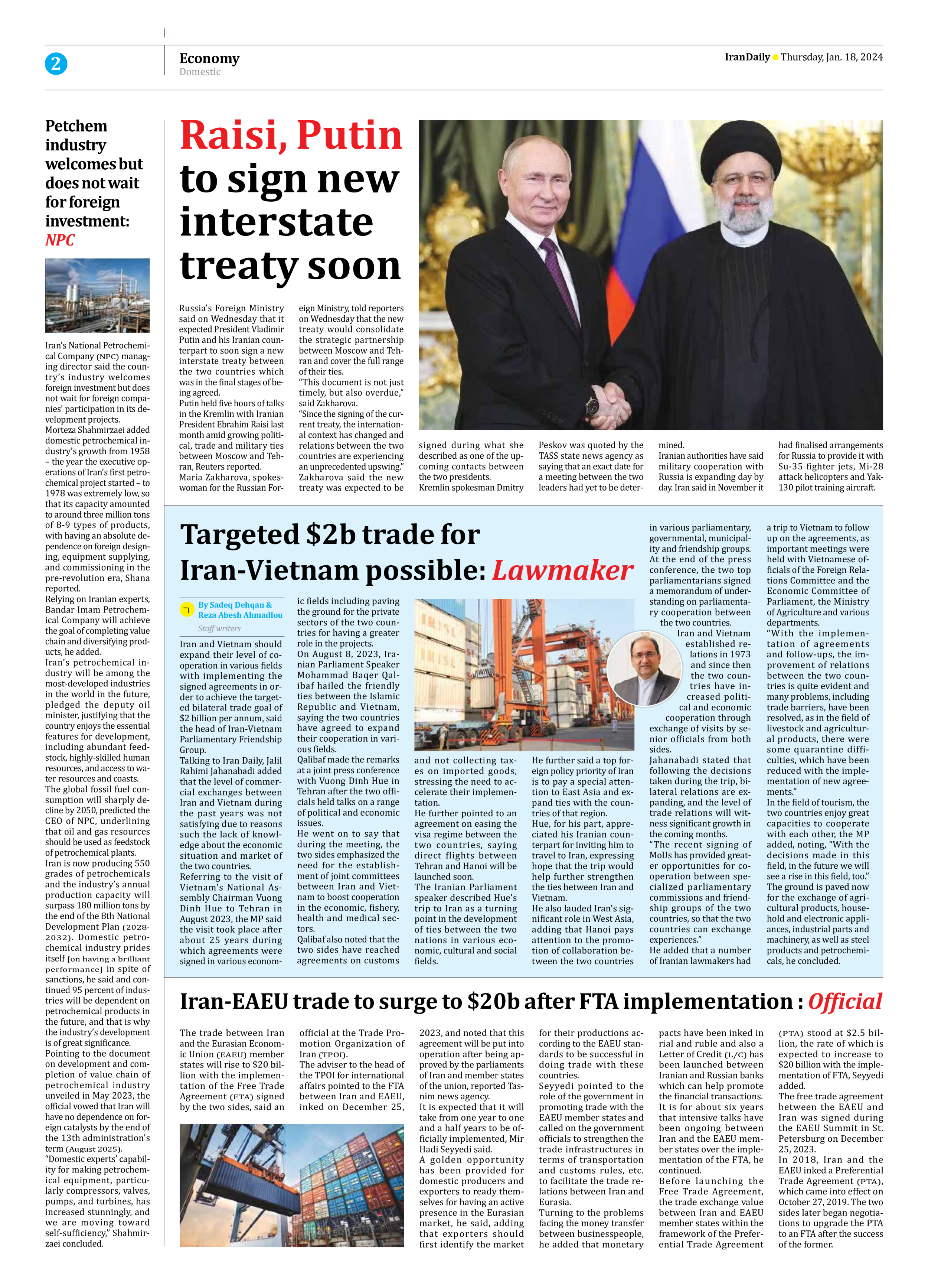
Petchem industry welcomes but does not wait for foreign investment: NPC
Iran’s National Petrochemical Company (NPC) managing director said the country’s industry welcomes foreign investment but does not wait for foreign companies’ participation in its development projects.
Morteza Shahmirzaei added domestic petrochemical industry’s growth from 1958 – the year the executive operations of Iran’s first petrochemical project started – to 1978 was extremely low, so that its capacity amounted to around three million tons of 8-9 types of products, with having an absolute dependence on foreign designing, equipment supplying, and commissioning in the pre-revolution era, Shana reported.
Relying on Iranian experts, Bandar Imam Petrochemical Company will achieve the goal of completing value chain and diversifying products, he added.
Iran’s petrochemical industry will be among the most-developed industries in the world in the future, pledged the deputy oil minister, justifying that the country enjoys the essential features for development, including abundant feedstock, highly-skilled human resources, and access to water resources and coasts.
The global fossil fuel consumption will sharply decline by 2050, predicted the CEO of NPC, underlining that oil and gas resources should be used as feedstock of petrochemical plants.
Iran is now producing 550 grades of petrochemicals and the industry’s annual production capacity will surpass 180 million tons by the end of the 8th National Development Plan (2028-2032). Domestic petrochemical industry prides itself [on having a brilliant performance] in spite of sanctions, he said and continued 95 percent of industries will be dependent on petrochemical products in the future, and that is why the industry’s development is of great significance.
Pointing to the document on development and completion of value chain of petrochemical industry unveiled in May 2023, the official vowed that Iran will have no dependence on foreign catalysts by the end of the 13th administration’s term (August 2025).
“Domestic experts’ capability for making petrochemical equipment, particularly compressors, valves, pumps, and turbines, has increased stunningly, and we are moving toward self-sufficiency,” Shahmirzaei concluded.







